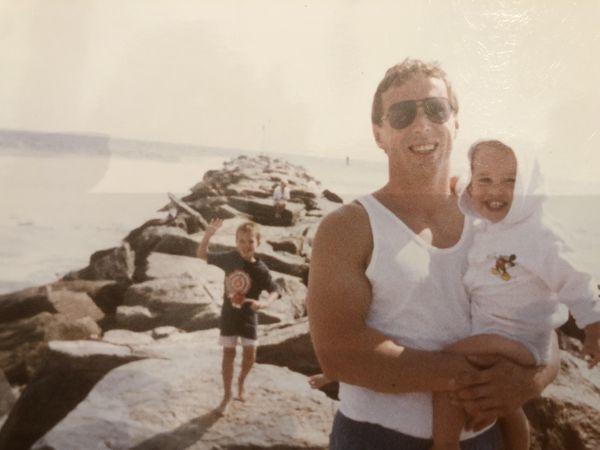I remember one of the caretakers pulling me out of the lunch line after I picked up my tray containing a rather unsavory meal and telling me I would be eating lunch with her that day. A knot of nerves began to tighten in my stomach as I became separated from the neat, single-file line of children, all staring at me as I was being escorted away.
I sat across from her, ready to hear my punishment for whatever it is they thought I did. I never got in trouble, so sitting solitarily across from an authority figure was even more nerve-racking for me. She told me I wasn’t getting punished. Instead, she had some exciting news for me. The paperwork had been processed, and I was being adopted.
That’s it. The rumors we were hearing were true. There was a kid among us who was leaving today, and it just so happened to be me. The night before, all of the children in the east wing of the orphanage (that included all children between the ages of seven and nine) sat around gossiping about who we thought the next person out of there was going to be. I guess looking back at it, it seems as though I’m depicting a scene of prisoners discussing who was the next lucky bastard with the “get out of jail free" card in his pocket.
That’s not the way all of us felt, though. None of us knew what happened to the children who were adopted other than what the adults surrounding us told us. The kids who were fortunate enough to be placed in a permanent home were told that they had more opportunities to succeed. They were told that they would now be part of a family that they could call their own, but here are some of the things that nobody ever told me.
“If you have any family members who frequently visit you at the orphanage, you will probably never see them again.”
I still had a family. It was broken and dysfunctional, but I knew that when I woke up each Friday, somebody would be waiting in the visitor’s center to take me home for the weekend. My grandmother, Valya, worked part-time at a candy shop at the time and would frequently bring me candy at the orphanage on the weekends when she could not afford to take me home.The weekend before I was adopted, I was called down to the visitor’s center to see her one last time. Even though neither one of us knew it. There she was with a grin spread across her face, clutching a bag of candy for me to share with the rest of the children. Time passed by as it usually did, and visiting hours were over. This was my last moment with the woman who had told me that she would be my everything, even when she knew she couldn’t offer me the life that I am privileged enough to live now. I cannot explain in enough words how much a person can mean to you when they are all that you have left. Nobody ever told us that we would never see each other again, but I really wish that they had.
“The good memories you have of this place will fade much faster than the bad memories.”
I was adopted when I was seven, which means that whoever was to adopt me had to take into consideration that I was no longer a clean slate. I had been introduced to the darker side of humanity at a much earlier stage of my life than intended. I didn’t just know about drugs, sex, and abuse. I had experienced it firsthand. Those are the memories permanently etched into the intricate crevices of my brain. Although I knew that I was a product of the love my birth parents once had for each other, I can now recall only the reminiscences that sprout from pain. The memories that I want to obliterate are the only ones that I can remember. If somebody would have told me that, I would have started paying more attention to the moments of tranquility among the chaos of my childhood memories.“You will forget your native tongue, along with your cultural background.”
“You may be adopted by a lovely family system, but it is not your duty to keep that system from falling apart.”
I recall riding in the back seat of the gray Suburban my mother owned at the time, hearing a song on the radio being played in a foreign language, and feeling the man I could now call my father tapping me on my shoulder to turn around. I did, and what I saw before me was a two-story country home surrounded by acres of green grass—my new forever home.
I now had a new mom and dad. A new family system that I swore to myself I would keep permanently protected. I told this to myself when I was seven, and again when I was 17 and my mother told me she was divorcing my father. I blamed the divorce on myself as most children do, but to me it was that much more personal. I was never told that it was not my responsibility to keep my parents happily married and together, yet to seven-year-old-me, I thought I was being promised permanence. I wish I were told that nothing is permanent, yet no matter the blood coursing through my veins, the people who love me will always be considered my family.





















